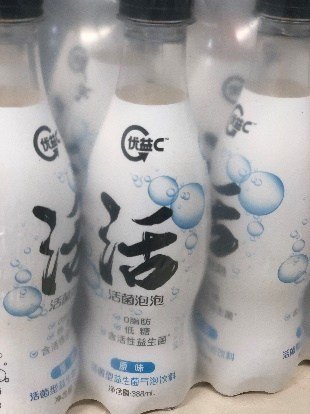Wednesday, 4 March 2026
Dow along with China’s leading dairy to commercialize resin based shrink film
Dow and Mengniu, announced the successful commercialization of a collation shrink film made with Dow’s PCR resins in Mengniu’s product packaging Dow and Mengniu, China’s leading dairy company, announced the…

Dow and Mengniu, announced the successful commercialization of a collation shrink film made with Dow’s PCR resins in Mengniu’s product packaging
Dow and Mengniu, China’s leading dairy company, announced the successful commercialization of a collation shrink film made with Dow’s post-consumer recycled (PCR) resins in Mengniu’s product packaging. Amongst the first for the food and beverage industry in Asia Pacific, the newly formulated one-pellet resin is 100% recyclable and will be used in Mengniu’s secondary packaging for dairy products. This collaboration aligns with Dow’s sustainability commitment to stop the waste by enabling 1 million tons of plastic to be collected, reused, or recycled through its direct actions and partnerships by 2030.
Dow, with its strategic recycling partners, utilizes domestic plastic waste collected from milk, water, and juice bottles, as well as a discarded flexible film within China, and transforms them into PCR resins. Specifically, the PCR resin is incorporated into the core layer of the collation shrink film and performs comparably to conventional options made with virgin resins. With the inclusion of recycled content in secondary packaging, brand owners like Mengniu can significantly reduce carbon emissions and footprint in their value chains while giving a new life to used plastics that would otherwise have become waste.
“Following our last partnership between Dow and our premium dairy brand, Shiny Meadow, to construct China’s first ever ’plastic road’ using recycled milk bottles, this initiative continues our trajectory to contribute to a circular plastics economy and close the loop by working with materials that are sustainable and recyclable,” said Pengcheng Li, vice president, Mengniu Dairy. “Being able to lead the green development in the dairy industry while setting a benchmark for others to follow in terms of sustainability, we hope to further our vision with the support of Dow to uphold environmental responsibility; increase use of recycled plastics, reduce greenhouse gas emissions, and address the plastic waste issue in response to growing consumer concern about the environment.”
Technology
NSF and Circle H Collaborate to Enable Global Certification Access
Mar 04, 2026 | Company News
IPC Report Flags Rapidly Deteriorating Food Security across Somalia
Mar 02, 2026 | Africa
University of Florida Develops Vitamin A–Rich Tomato to Tackle Global Deficiency
Mar 02, 2026 | Food
Food Testing
NSF and Circle H Collaborate to Enable Global Certification Access
Mar 04, 2026 | Company News
Australian Medical Bodies Push for Compulsory Health Star Labelling
Feb 24, 2026 | Australia
Tim Hortons Singapore Secures Majlis Ugama Islam Singapura Halal Certification Ahead of Ramadan
Feb 23, 2026 | Company News
More Popular
World Obesity Day 2026: Eight Billion Reasons to Act, with Asia at a Turning Point
Mar 04, 2026 | Opinion
Magtein partners with Arnold’s Pump Club
Mar 04, 2026 | Company News
Norway’s Seafood Exports Slip 2% in February amid Wild Catch Decline
Mar 04, 2026 | Europe





